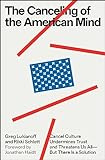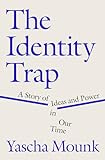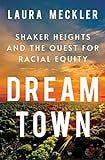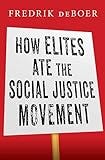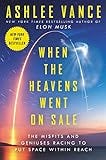It’s almost that time…Did you put off your holiday shopping? Need a gift or three? Just like to read? Here’s the Eduwonk Holiday Book gift guide. (And here’s last year’s, I am seeing a few of those books on 2023 lists, too).
If we had to live a book the past few months I would have at least hoped for a Hemingway story with some fishing in it (I have one for you below). Or even better maybe a nice poem. Instead, we’re living the argument of two new books: Yascha Mounk’s The Identity Trap and Greg Lukianoff and Rikki Schlott’s The Cancelling of the American Mind.
Mounk shows why identity-based politics are a dead end. Implications for how the education sector thinks about politics and progress and implications much more generally for our civic life. Hard to miss how much more effective idea-based education politics were than the soup reformers are trying to sell now is. Lukianoff and Schlott argue how and why “cancel culture” stifles expression and creates the style of argument we’ve seen these past few months, not to mention last decade.
The choice of college or career training after high school is often set up as a binary. In The Career Arts education analyst Ben Wildavsky makes clear why college matters, but also offers advice for thinking about different paths, social capital, and how to get the most of your experience and set yourself up for success.
But, higher education needs reform and changing the institutions is tough. Former college president Brian Rosenberg lays that out in the provocative and witty “Whatever It Is, I’m Against It.”
In Dream Town Laura Meckler revisits Shaker Heights. Come for the lively discussion of John Ogbu and Ron Ferguson’s research, which should be discussed more, stay for a timely story for 2023.
In the The Death of Public School Cara Fitzpatrick looks at the history of school choice and the battles in legislatures and the courts. The pro-or anti-choice zealots on your list will love the title, everyone else will appreciate the research and the story. I discussed the book with her on WonkyFolk earlier this fall.
In How Elites At The Social Justice Movement Freddie deBoer takes a look at why social justice movements often fall short and in particular why did the energy of 2020 amount to so little? DeBoer is unsparing, not because he doesn’t care but rather because he does.
Salty!
Not a book, but a spicy entry from Oakland education leader Hae-Sin Thomas and her husband Parker. The pair has launched a business offering cooking salt. Jo Su offers a terrific array of options for different palettes as well as gift packages. Strongly recommend!
In The Exceptions New York Times reporter Kate Zernike gives a book length treatment to the story she broke about how MIT discriminated against female scientists. Unlike how these things usually come to light, class action suit or a whistleblower, these women documented their case themselves. Zernike, who does great work when she turns her attention to education, tells the story.
You might assume I’m including a book about space on an education as a STEM angle or something along those lines. But I’m including Ashlee Vance’s When the Heavens Went On Sale because it’s a hell of a story with an ending we don’t know yet. If the first era of space was government working with the private sector the second phase is increasingly the inverse.
Community colleges are an amazing part of the education ecosystem and an often inspiring place to see the American ethos of an education system that offers many second chance opportunities. In America’s Hidden Economic Engines, a slim edited volume, Bob Schwartz and Rachel Lipson compile some examples and offer some ideas for policymakers.
Elliot Washor is a longtime voice for ideas about a different, more hands on, way to do schooling. Learning To Leave, which (I assume) is a play on the classic British sociological work Learning to Labor follows their previous Leaving to Learn, Elliot Washor and Scott Boldt profile schools offering students a radically different learning experience. These ideas only work in a system of choice, which is the irony of the education conversation today. The anti-testing people are also generally the anti-choice people all the while claiming to be against “one size fits all.” It’s why voices like Washor are so important.
Ernest Hemingway’s Big Two-Hearted River is turning 100. John Maclean (his father was Norman Maclean, A River Runs Through It), who primarily writes about wildland fires and firefighting writes the intro to this lovely new hardbound edition illustrated by Chris Wormell. Highly recommend.
Best wishes for the holidays and 2024.




